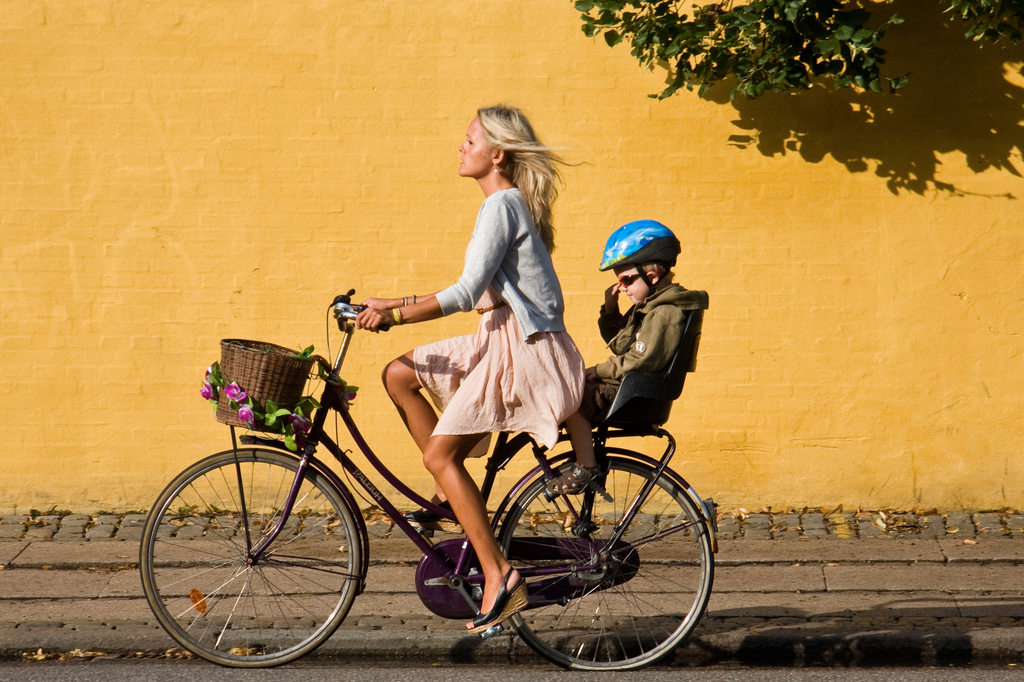Alan
An exposé in two parts on the history, manufacture, and environmental toll of the global color industry, with a focus on Cascadia’s Spokane River. There, a state-of-the-art paper recycling plant—clean and green in itself—proved a contaminator of the first order, because of the viciously toxic materials used in the colored inks in the paper it recycled. The web grows outward from there. Along the way, intriguing observations such as: “India and China now control the primary colors.”
Anna
One big reason fewer US women bike is not what you might think! Men in the US are far more likely to make a bicycle trip than women, and just one-quarter of bicycle commuters are women across the US. “The gap is large, and no city in the US has closed it.” It’s often chalked up to differences between men and women in risk aversion and comfort on the road. But get this: the reason fewer American women (than, say, Dutch women) get around by bike is likely in large part because they are responsible for more household and child-rearing chores, like school pick-up and grocery shopping, than their male counterparts here and than women in Holland. It’s actually not so much about safer streets and better bike infrastructure. Here are the social and community differences that give Dutch women more freedom to ride:
Dutch women can use bikes to get around because they are less pressed for time than American women, in three fundamental ways. First, thanks to family-friendly labour policies like flexitime and paternity leave, Dutch families divide childcare responsibilities much more evenly than American families. Second, work weeks in the Netherlands are shorter. One in three Dutch men and most Dutch women work part-time, and workers of either gender work fewer hours than Americans.
Lastly, Dutch parents do much less chauffeuring of children and elderly family members than American parents. Neighbourhood schools and high-quality bike infrastructure in the Netherlands make it easy for Dutch kids to walk or bike to school, unlike their counterparts in America, where rates of bicycling and walking to school have been declining for decades. Dutch elderly are also much more independently mobile than their American counterparts.
If you weren’t already packing your bags to move to Holland after that first item, consider Sweden perhaps? It just introduced the six-hour work day.
Here’s brighter news on this continent. In a region with nearly 24 hours of daylight in the summer, one way to cut the costs of diesel-generated electricity and gain more freedom and independence: more solar power. Solar is empowering indigenous peoples in Canada’s far north.
And, “here’s the hellscape Minnesota has become” two years after raising the minimum wage and raising taxes on the rich:
Since 2011, Minnesota has been doing quite well for itself. The state has created more than 170,000 jobs, according to the Huffington Post. Its unemployment rate stands at 3.6% — the fifth-lowest in the country, and far below the nationwide rate of 5.7% — and the state government boasts a budget surplus of $1 billion. Forbes considers Minnesota one of the top 10 in the country for business.
Keiko
The Surfrider Foundation‘s Seattle chapter is battling butts—cigarette butt litter, that is! So far, it has installed 27 cigarette canisters around Seattle, which will help prevent cigarette butt litter from reaching local beaches, parks, and waterways. Learn more here.
Did you miss the Honest Elections Seattle (I-122) Q&A on Reddit’s AMA? Read the full conversation here. (Do you want even more reason to vote YES on I-122? Don’t forget to watch campaign manager, Brianna Thomas, go beast mode on the “no” campaign in this debate!)
After you read this, you’ll want to go out and thank every inspirational writing teacher that you have ever had.


Comments are closed.